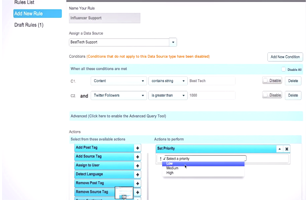
How easy it is to connect with other business systems Winner: Salesforce offers more integrations (especially third-party) but Microsoft's native integrations are much better. So, if your company has invested heavily in Microsoft products, Dynamics 365 CRM could be the one to choose, thanks to smoother synchronisation and familiarity of the user interface. Salesforce does connect to these popular Microsoft apps but the native integration you'd get with Dynamics 365 is much better as Microsoft own these products. Plus, Microsoft's native integrations with their other popular, market-leading products, such as Microsoft Power BI and PowerApps (which allows you to turn your data and current connections into custom apps), Office 365 and Teams. However, Microsoft has invested heavily in their app connections and is fast gaining on Salesforce. Handy if your in-house developers want to build custom solutions on the Salesforce platform.

This is mostly because Salesforce offers more than 3,000 apps and has its own partner program and connected platforms. Generally, it's said Salesforce has the upper hand when it comes to optimising your out-of-the-box CRM for specific industries/business models.


If you need more than their native add-ons, browse Microsoft's AppSource and Salesforce's AppExchange for third-party applications and integrations.
Salesforce vs microsoft dynamics software#
The out-of-the-box software isn't enough? Not to worry! Both Microsoft and Salesforce offer plenty of application add-ons to help you tweak the system to how you need it. However, we'd say Dynamics 365 wins, thanks to its flexibility. Winner: Both are great as it depends on what your business needs. Perfect if your business is still on the fence about completely moving your core systems to the cloud. For example, Sales and Service is available in a fully cloud-based version while other options like Finance and Operations are also available as on-premise. Great if your business is completely on-board with storing your data on a remote server and switching to browser-based and/or mobile-friendly software.ĭynamics 365, on the other hand, offers both cloud and on-premise. Salesforce was designed and built for the cloud.

Not as many integrations as Salesforce on Microsoft AppSource. There's a cloud version and an on-premises version.ĭesigned and built exclusively for the cloud.


 0 kommentar(er)
0 kommentar(er)
